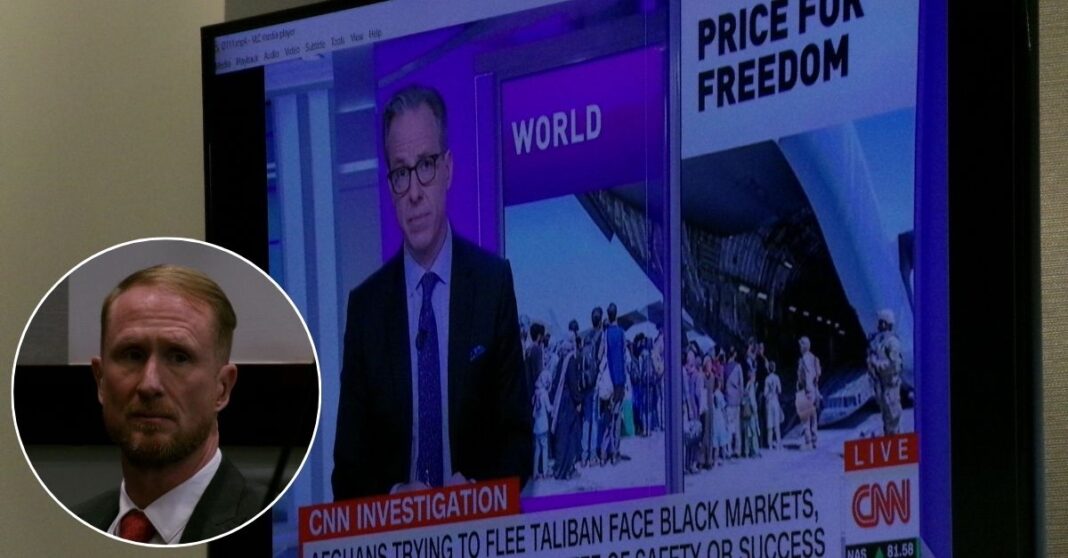Attorneys for both sides in a defamation case involving a U.S. Navy veteran and a major media outlet presented their opening statements on Tuesday in Bay County, Florida. The lawsuit centers on a segment aired in November 2021 that the veteran, Zachary Young, says unfairly portrayed him as an unscrupulous operator exploiting Afghan citizens during the chaotic U.S. withdrawal from Afghanistan.
Young, a security contractor specializing in rescuing people from dangerous situations, claims the report wrongfully accused him of operating in the “black market” and charging exorbitant fees. He says these accusations ruined his reputation, devastated his business, and turned him into an outcast.
In their opening, Young’s attorneys argued that the media outlet recklessly aired a sensational story without verifying the facts. They claimed the organization focused on creating drama rather than truth. Young’s lawyer told the jury that internal emails and footage show how the network deliberately painted Young as a villain, calling it a “hit piece.”
The segment at the center of the case displayed a photo of Young with captions implying he charged high fees for unsafe escape attempts. His lawyer said the report caused irreparable harm, describing how it destroyed the career Young had spent two decades building. He explained that former colleagues and intelligence professionals distanced themselves from Young, leaving him with no prospects in his field.
One key issue in the case is the phrase “black market.” Young argues it falsely implies he engaged in illegal activities, a claim the court has already ruled untrue. The jury must now decide whether the term unfairly damaged Young’s reputation.
The media outlet’s attorney, David Axelrod, defended the reporting as tough but fair. He said it accurately reflected Young’s actions during a desperate and dangerous time. Axelrod claimed Young charged Afghans as much as $14,500 for escape services, an amount most couldn’t afford. The defense insists the term “black market” referred to the covert nature of Young’s operations, not criminal conduct.
Axelrod also pointed out that Young would not be calling witnesses to testify about damage to his reputation or career, suggesting there was no evidence that the report had hurt him. He acknowledged internal comments made by employees about Young but urged jurors to consider the larger context of the story.
The trial, presided over by Judge William Henry, continues with Young expected to testify later in the day. This high-profile case raises significant questions about the balance between journalism, accuracy, and the responsibility media has to the individuals it reports on.
